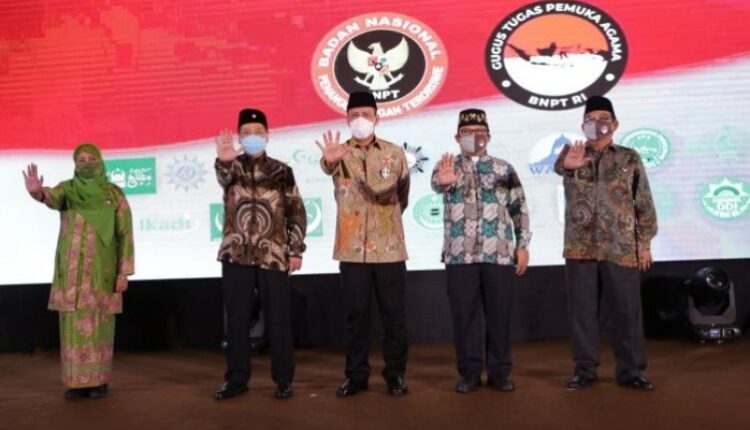Religious Leaders are the Key to Countering Intolerance and Radicalism
By: Muhammad Yasin)*
Radical and intolerant groups often justify their actions with religious motives, so that it is very detrimental to the religion. Therefore, it is necessary to strengthen the role of religious leaders as one of the keys to countering intolerance and radicalism.
Religious leaders are figures who become role models for most of the community, so anyone who is considered a religious leader must be able to provide good examples and role models for the community.
On the occasion of the inauguration of the Bondowoso MUI board, the Regent of Bondowoso Drs. KH. Salwa Arifin hopes that the administrators of the Bondowoso Indonesian Ulema Council (MUI) will be more diligent in providing guidance to the public regarding the issue of understanding radicalism.
Bondowoso Regent Drs.K.H. Salwa Arifin also wants Bondowoso MUI to immediately carry out its main tasks and functions, namely in the field of providing halal certificates for food and beverage products and so on.
Meanwhile, the chairman of the Bondowoso MUI, KH Asy’ari Fasya, admitted that radicalism and intolerance occurred throughout Indonesia, not only in Bondowoso. However, he said that his party had anticipated such a movement or understanding so that it would not develop. Namely by sitting with religious leaders, community leaders and others.
Not only that, in anticipating his party will also go directly to the community, schools and Islamic boarding schools in Bumi Ki Ronggo to be able to provide guidance.
Previously, former Minister of Religion Lukman Hakim Saifuddin said that the most effective way to counter radical ideology was by taking preventive measures. According to him, it is necessary to provide true religious understanding by religious leaders and especially families so that someone does not get lost in their way of thinking.
He also said that in this era of globalization, Indonesian families should not be infiltrated with ideas that are contrary to the nation’s ideology. So, according to him, the power of religious understanding in the family environment must be strengthened. Lukman said, essentially religious teachings are for the welfare of humans, not for spilling blood on each other.
Lukman assessed that there needs to be a strong commitment from all elements of the nation to fight terrorism. Especially from those who have a religious base.
Meanwhile, Habib Lutfi as Watimpres said the fading spirit of nationalism was one of the reasons for the rise of radicalism among millennials. Of course, this challenge is not only the task of MUI or BNPT, but also requires concern from all levels of society in building the quality of the younger generation so that ideologies that are contrary to the national consensus are not easily infiltrated.
Previously, the Director of Prevention BNPT Brigadier General Pol. R Ahmad Nurwakhid in the BNPT RI Muhasabah event with the BNPT RI Religious Leaders Task Force in the context of preventing radical understanding of terrorism with religious organization leaders who are members of the Islamic Ormas Friendship Institute (LPOI) and the Religious Ormas Friendship Institute (LPOK) which took place at the LPOI-LPOK Secretariat .
Nurwakhid said radicalism shows a crisis of spiritualism. For this reason, the issue of radicalism and intolerance is the shared responsibility of all elements of this nation. He asked that religious leaders always have a commendable attitude so that they can be role models for their followers. Nurwakhid said that religious leaders need to convey to the people that all acts of radicalism and terrorism have nothing to do with any religion but are related to deviant religious understanding and ways.
He also said that acts of radicalism and terrorism will only cause division among the nation’s children. Moreover, this action is contrary to the values and principles of the religion that maintains unity, peace and rahmatan lil ‘alamin.
The public also needs to understand that radical actions and intolerance will only cause friction among others and also become enemies of the state. This, of course, is not in accordance with the consensus or agreement of this nation, namely Pancasila which has legally become the ideology for the Unitary State of the Republic of Indonesia (NKRI).
The community and the younger generation in Indonesia need examples from religious leaders. Religious leaders who often voice hatred, disbelieve and think that Pancasila is a tagut, of course, must be a concern for the apparatus to provide follow-up, lest provocative lectures will have an impact on the destruction of relations between people in Indonesia.
)* The author is a contributor to the Press Circle and Cikini Students
